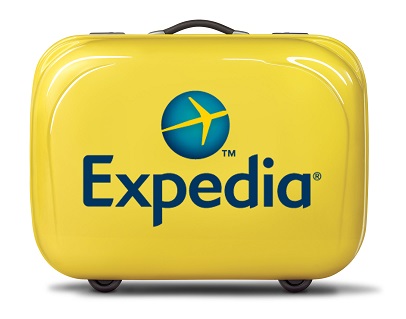When you search for hotels through online travel agency sites, you only thought you were the customer. It turns out you’re the product. Expedia now lets hotels bid to have higher placement in search displays. So Expedia monetizes your eyeballs, selling a better likelihood you’ll book a particular property to hotels with a product they call Accelerator.
Expedia’s advantage is that they have a lot of people searching. People go there, they’re likely to book, and that audience is worth something. So Expedia seems to have moved from doing its best to find customers the best deal, to a model where they’re selling customer eyeballs to advertisers (hotels).

That works while they maintain their market position and traffic. But to maintain their market position and traffic they have to do a continually better job at helping customers navigate through the complex world of travel, making it easy to find what the customer values most.
This has been the key struggle for years. Online booking put the brick and mortar travel agent out of business for basic air and hotel transactions. But something was lost in the process. It takes a lot of knowledge and reading to understand what among myriad options is best for a specific trip and specific set of consumer preferences. Not all travel agents were good, but the good ones were valuable guides. That guidance got lost.
So online booking sites did their best to provide mass customization. They knew they had to give the customer what they wanted, right away or they risked losing that customer to a competing site.
Four years ago Orbitz got into some publicity hot water when it turned out they were showing more expensive hotels to mac users compared to PC users. This got misreported as “Orbitz charging Mac users more for hotels” when in fact what they were doing was trying to better match hotel choices to users based on the data they had. Mac users spend more, so they showed higher priced properties to Mac users. It was a very crude way of getting at this idea of recommending to consumers what they actually want.
Of course Expedia is acquiring Orbitz. There are fewer sites as there are fewer airlines and fewer hotel chains — though competition remains fierce with Priceline Group sites like Booking.com. And this doesn’t ultimate worry me, because if Expedia stops making its mission to solve the needs of consumers and tries to sell consumers instead they’ll be playing right into Google’s hands who will clean their clock.
Expedia already can be tough to deal with. Hotels aren’t paying the commissions they were during the Great Recession. And online booking sites are losing out to hotel chains in deals that allow those chains to offer lower rates on their own sites.
Hilton managed to negotiate deals with the major online travel agency sites that no longer require the chain to give third parties “rate parity” — in other words, they can sell rooms for less on their own website. So in the fall they tested a small discount in a handful of cities restricted to Hilton HHonors members. The discount wasn’t great, about 5% (and so generally more expensive than AAA rates), but it was more about the model than the amount.
Hilton expanded the discount offer worldwide this week and is promoting the idea that guests should “stop clicking around” and book at Hilton.com. Not only is there a discount available but you earn Hilton HHonors points, something that’s excluded on third party bookings (though you also forego third party rewards such as from Hotels.com when you book through Hilton — and if you aren’t loyal to Hilton, those may be more rewarding).
Here’s what happens when you book direct:

.. at least according to Hilton’s commercial that they spent $1.3 million to air 49 times between February 15 to 17.
Ultimately online travel booking consolidation can be seen less as exploitive and more as desperation. Hotel chains are consolidating, and they’re paying less. Booking sites are trying to figure out ways to extract revenue as their income per booking is declining and as they face new competition from Google and from other potential competitors in mobile.
Still, it’s a risky move that Expedia makes. And the competing claims Expedia makes about it underscores that point.
“Customers want to see hotels that meet their needs from the start,” says Expedia Inc. spokesperson Sarah Waffle Gavin. “Expedia offers a one-stop shop to search for and book various hotels based on rate, availability and service for the dates and location travelers are interested in. Our results are customized to show listings we predict will best meet the needs of our shoppers, and every search comes equipped with various filters to adjust content even further for things like amenities, neighborhood, or VIP status, to name a few.
“Overwhelmingly, we hear from suppliers that they care deeply about sort placement,” Waffle Gavin said. “Particularly in competitive markets, a small bump in sort position can have a big impact on a hotelier’s conversion. At Expedia, we’ve refined our algorithms over the last 20 years to prioritize sort by Offer Strength, Quality Score, and compensation. This combination has provided the greatest customer satisfaction, demonstrated by bookings. What’s more, by building a marketplace where the hotels with the best deals and positive hotel reviews are at the top, we generate the highest returns for our supplier community.
Expedia simultaneously says that they provide the best judgment for consumers, independent of whether hotels are paying. But that hotels can improve how they’re displayed to consumers if they pay.
By keeping it ‘only one factor’ and potentially even just a tie-breaker they walk a tight rope in a competitive space.


Is this new? I always assumed the sponsored listings sections were just that – paid screen placements. Moreover, I thought part of the hotels contract negotiations with EXPE (particularly at chains) would include both elements of mark-up/commission and some level of placement (i.e. top 10 placement for 20% of searches, or similar).
This has been happening a very long time. I guess you don’t use Expedia much? 😉
Also, it seems to me they’re precisely replicating the uber-successful Google model of having 1-3 transparently sponsored listings at top and organic results below. That is a fantastic model that has benefited searchers, marketers, and Google/Expedia.
@Matt
Matt, sponsored ads are “oficially” paid, but Expedia also charges for placement, they have all kinds of “incentive” packages that they sell to hotels for placement, banners, etc etc, and of course there is always the good old way of bribing Expedia sales managers for higher placement I assume….
most people don’t scroll further thatn 2nd page (statistically…)
Big deal. Google does the same. This is not a story.
@Doug is right, there are listings that show as “sponsored” and then there are all the rest that have not paid as much, but are also paying to be higher in the sort order. It would be the same as google if google did not differentiate between between paid search results and organic search results, but they do make the distinction fairly clear.
Homeaway and VRBO used to do their listings accordingly to the quality of the listing (how current, reviews, etc), trying to offer the best options to guests. About 5 years ago , they started charging more for higher placement and have been extending that more each year. More recently, they started giving better positioning if you use their other ancillary services. At this point, virtually nothing about what is shown to guests has anything to do with what guests might want, position is pretty much all bought and paid for. This is a slippery slope Expedia are on.
Expedia writes the algorithm for search it uses on its sites, and it ranks hotels based on a number of factors but really it’s all but it what is going to make them the most money. So why is anyone surprised they are willing to take additional compensation from hotels for better placement? They have sponsored listings, this is basically pay per click. Hotels set up ads and place bids for placement at the top and bottom of each page. They have recently released the accelerater where hotels can increase the commission they pay to Expedia to get a boost in placement. The days of Expedia managers being able to over ride the placement algorithm are long gone, they now realize the hotels will pay good money for this so why do it for free. As far as the HHonors only deals Expedia and booking.com have been offering their own members only deals for a few years now (really in violation of rate parity agreements) this just levels the playing field on that front.
There are different ways online travel agencies “sell” hotel placement listings. The “traditional” way is that, when you do a destination search, they display them in “recommended” order. Only an inexperienced traveler would rely on this biased list: you have to then click again to get a “better” list — ranked by price, hotel stars, review score, etc (personally, I usually then click again to display only the “excellent” rated hotels, where “excellent” actually means “not terrible” in industry parlance).
What I think is now happening is that, even when you select a “better” sort, that list is still interrupted by “paid ads” from hotels that have made special arrangement with the online agency. Obviously, these ads are annoying but, as long as they don’t get out of hand, are a small price to pay for the convenience that many online agencies provide.